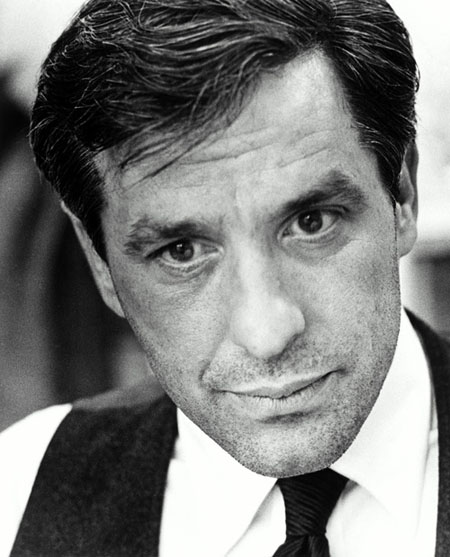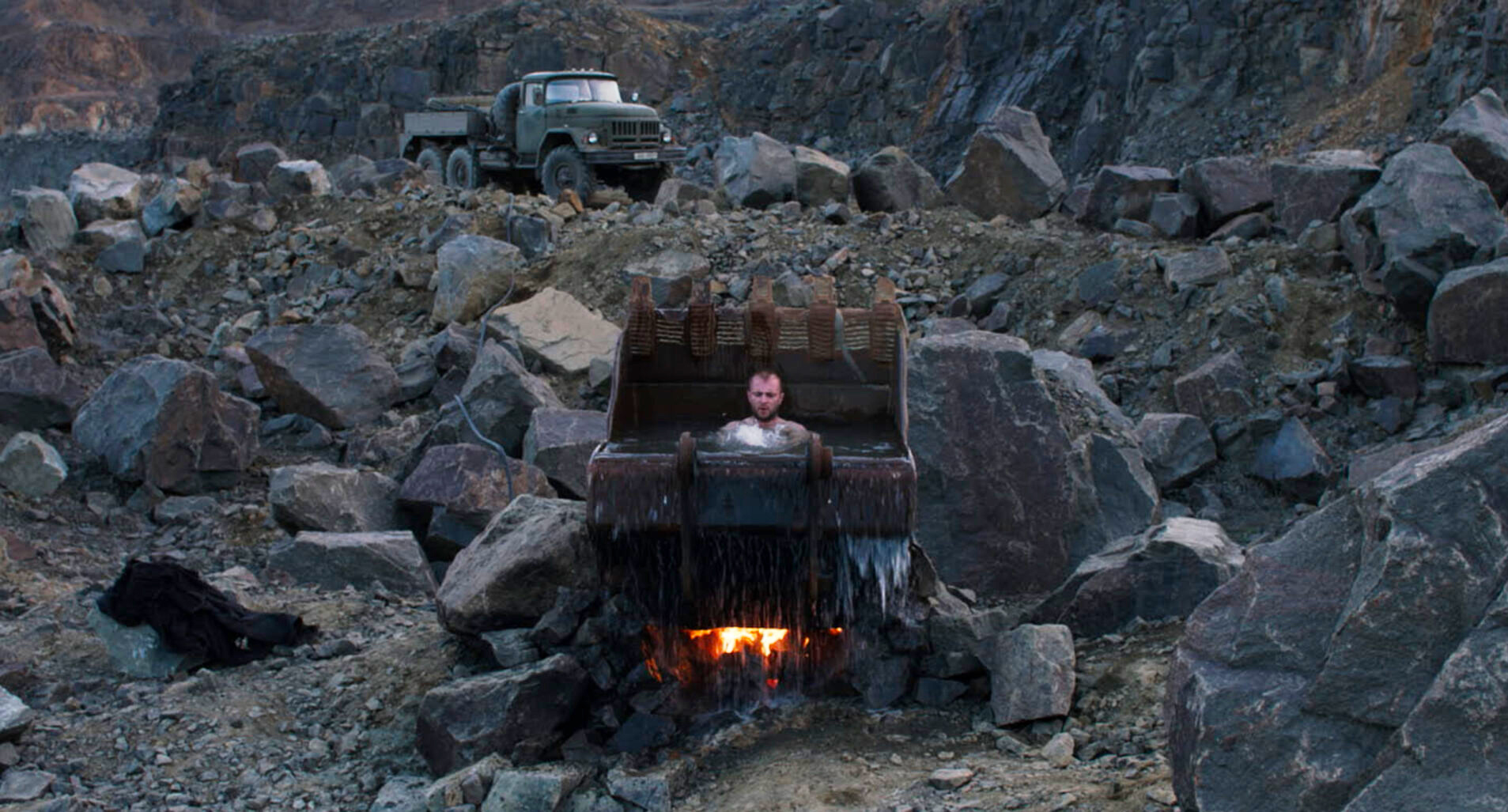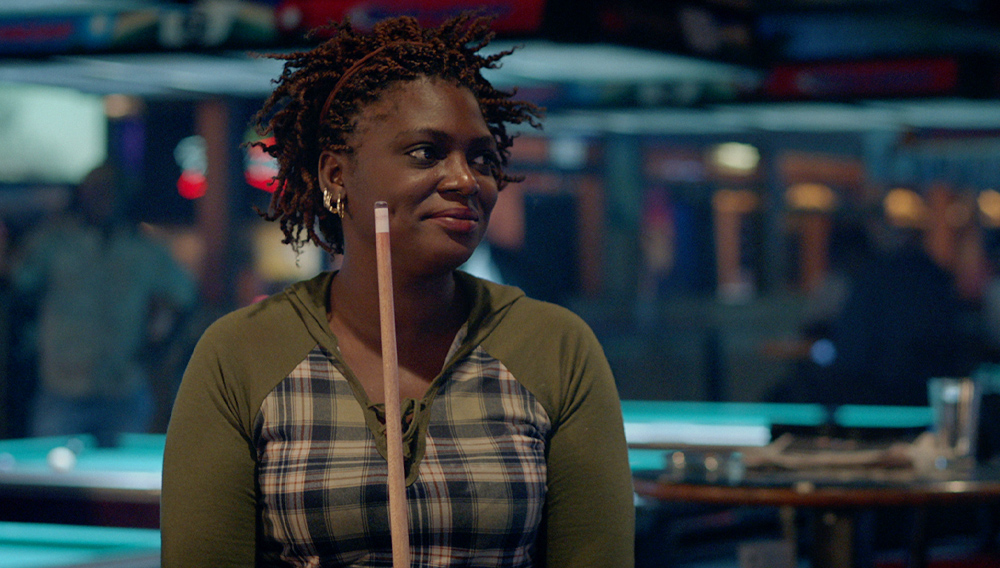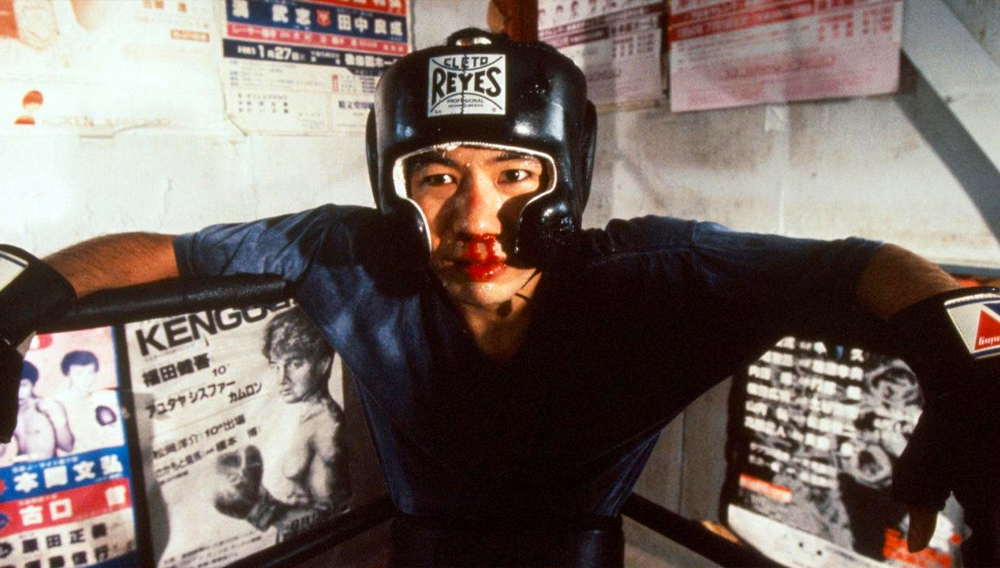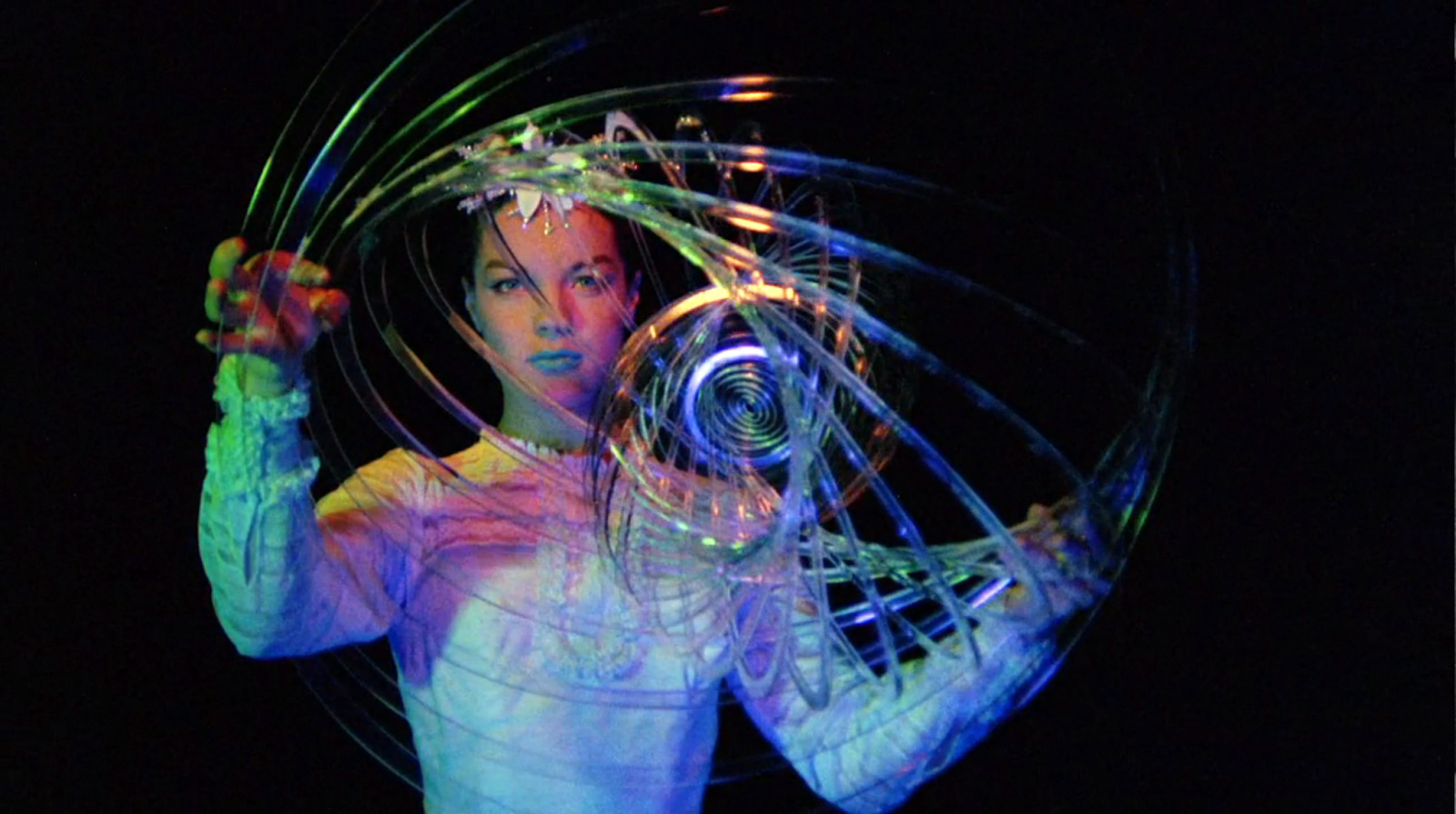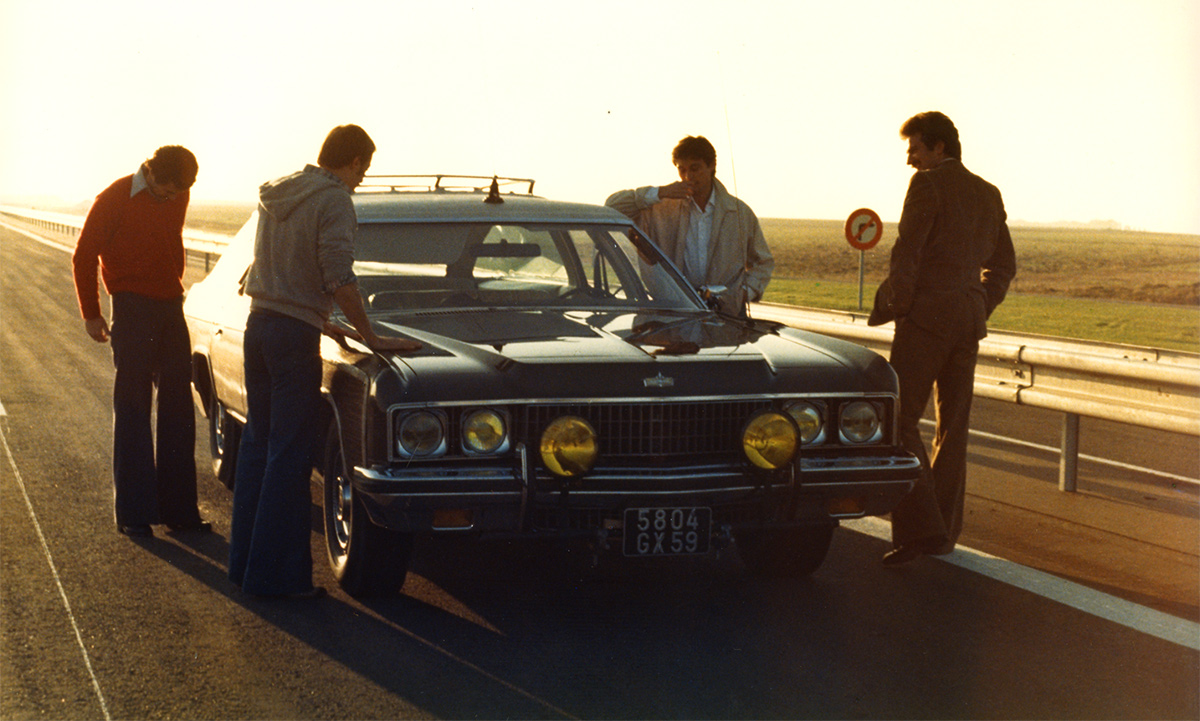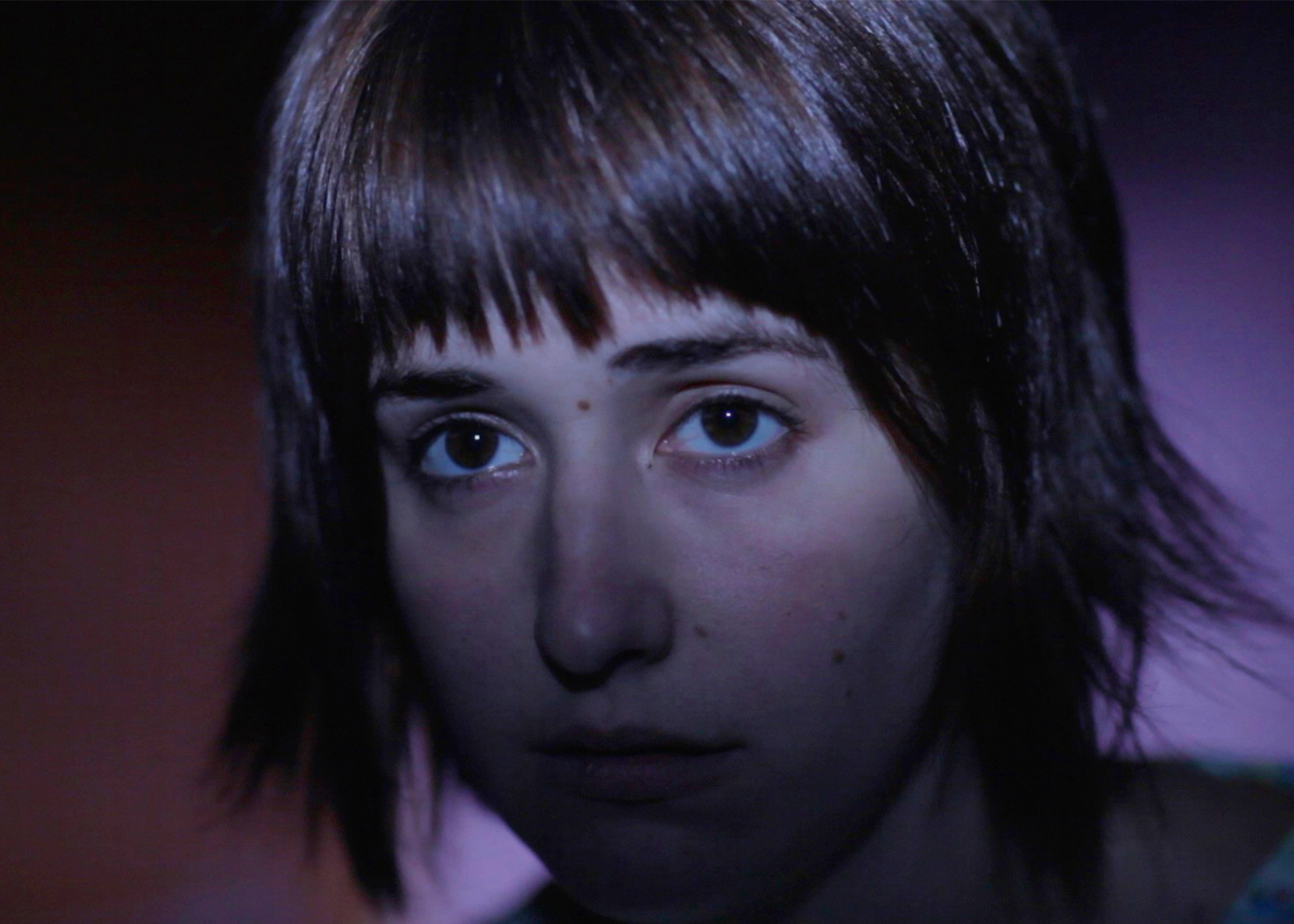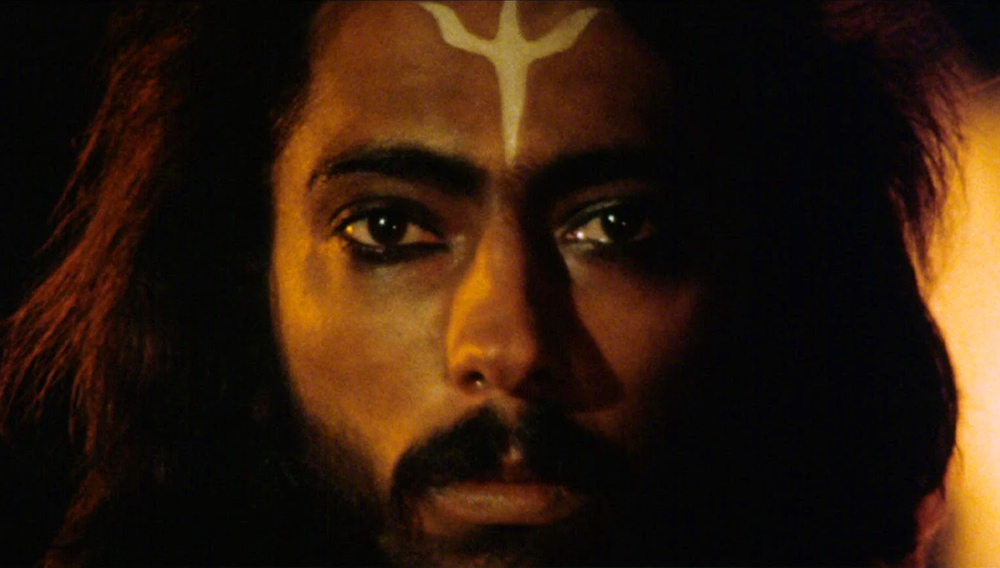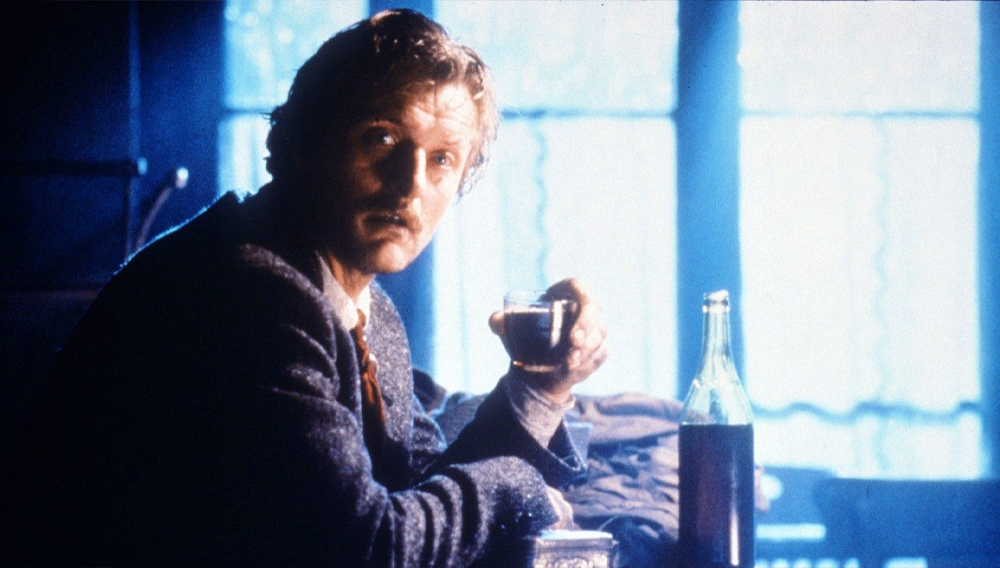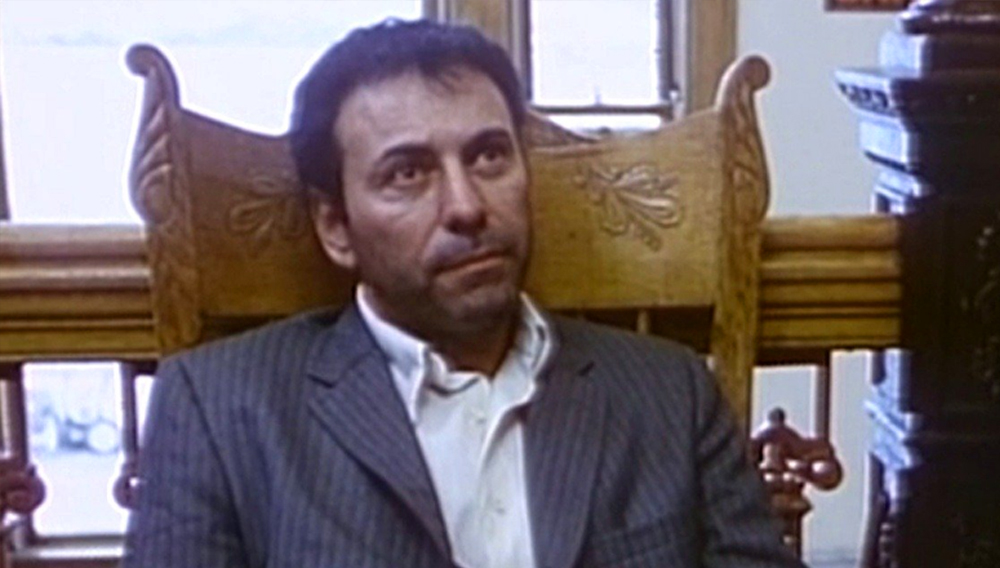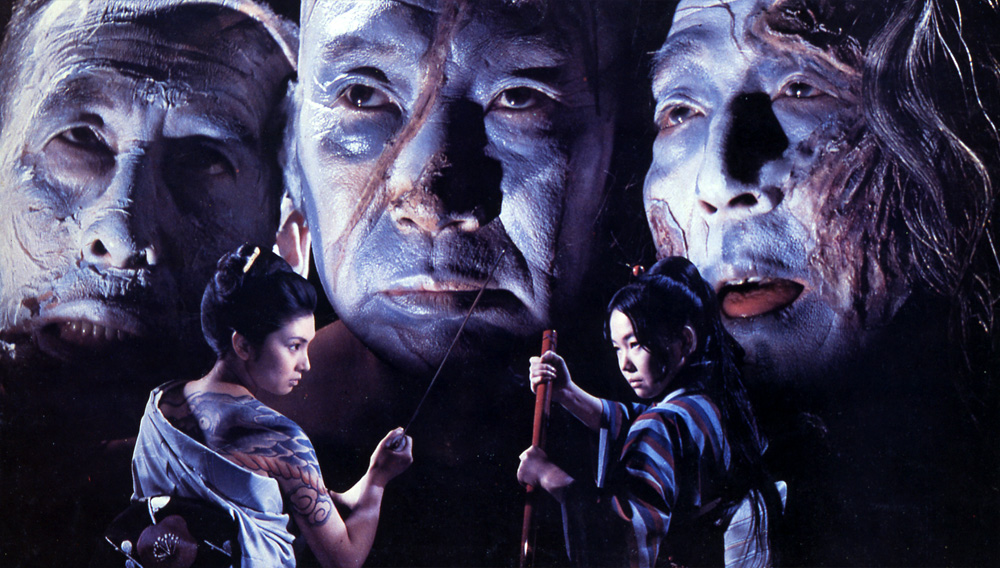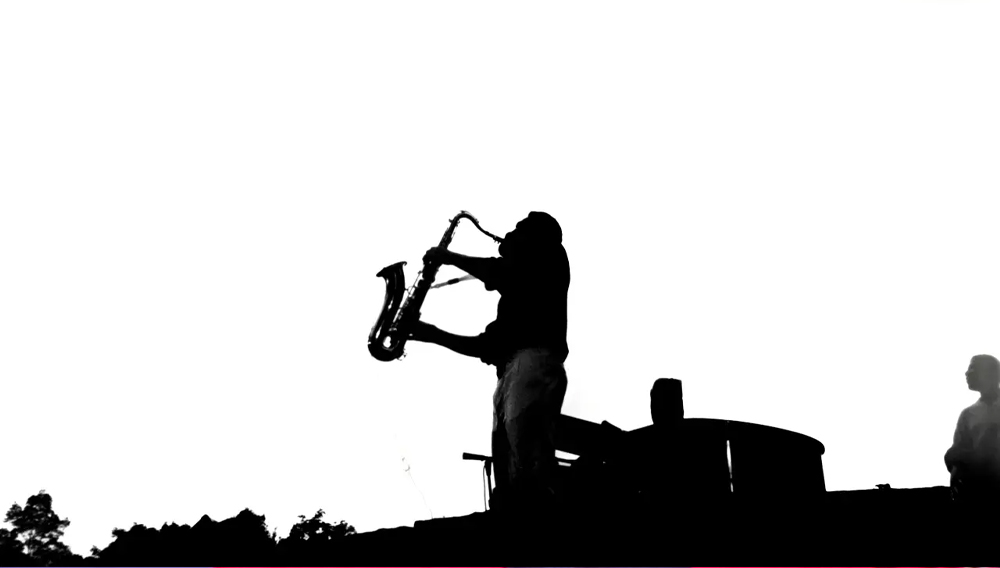Cassavetes, a retrospective of 20 films directed by and/or starring the “Godfather of American independent cinema,” all of them 35mm prints, opens at BAMcinématek today and runs through July 31. Mariana Shellard and Aaron Cutler in the Voice: “Cassavetes began as a charismatic 1950s New York actor in movies like Martin Ritt’s heavy social drama Edge of the City (1957) until his dissatisfaction with how others directed him led him to become a director himself. He saw traditional dramatic modes squeezing the life out of actors to fit them into contrived characters, and believed it should work differently: Conflicts between characters should come from within the people playing them.”
For the New Yorker‘s Richard Brody, “most of Cassavetes’s films are about the brute beneath the suit. Whether it’s Faces—the 1968 film that is more or less his Portnoy’s Complaint, a great liberation in style, subject, and tone—or Husbands [1970] or Opening Night [1977], he’s filming the upwardly mobile children of immigrants, the rising suburban bourgeoisie whose high-strung striving comes with a hair-trigger aggression as well as a tightly restrained vitality.” Here, he discusses A Woman Under the Influence (1974):
Back in May, when the BFI released Opening Night on Blu-ray as part of its collection of dual format releases of work by Cassavetes, Matthew Thrift surveyed the work he did, both as an actor and director, with Gena Rowlands: Johnny Staccato (1959-1960), A Child Is Waiting (1963), Faces, Machine Gun McCain (1969), Minnie and Moskowitz (1971), A Woman under the Influence, Two-Minute Warning (1976), Opening Night, Gloria (1980), Tempest (1982), and Love Streams (1984). And he intersperses his notes on each of these films with delicious quotes from Cassavetes himself. The one right at the top: “Before I met Gena, I was a bachelor going out and torturing people. I think that’s good for young people. When I saw her, that was it! The first time I saw her, I was with an actor, John Ericson, and I said, ‘That’s the girl I’m going to marry!’”
“As a film star,” wrote Gary Giddins in a 2004 piece on Cassavetes’s 1959 directorial debut for Criterion, “John Cassavetes embodied the kinetic, wild-eyed, insanely grinning villain. He seemed born to the role, with his volatile energy and dynamic outbursts, luminous yet curiously deadened eyes, wide gaping mouth (David Thomson likened it to a shark’s). From the moment he shows up, he suggests a loose screw: think Saddle the Wind (1958), The Dirty Dozen (1967), Rosemary’s Baby (1968), and The Fury (1978), in which a lifetime of pent-up malevolence is released in a quaking detonation—a Roman candle of rage. Of course, he also played good guys, like the pianist-detective on the 1959 TV series Johnny Staccato, a short-lived Peter Gunn imitation that enabled him to pay off the debts from Shadows, which cost all of $40,000. But even as a hero, he was too unpredictable to inspire confidence. Thus it may come as a surprise to learn that the Cassavetes behind the camera, the one who launched America’s independent cinema of the 1960s and ultimately made a dozen films (most of them completely under his control), considered himself and was considered by associates as a missionary of love. ‘I have a need for characters to really analyze love,’ he said. ‘That’s all I’m interested in—love and the lack of it.'”
“Nowhere was the tension between Cassavetes’ linear and digressive, driven and entropic tendencies more sharply fought out than in The Killing of a Chinese Bookie (1976), one of his most fascinating achievements,” wrote Phillip Lopate, also in 2004, also for Criterion. “Following up his success with A Woman Under the Influence, the director thought it might be interesting to try a gangster picture to stretch himself, in effect, by exchanging the domestic suburbia of quarreling married couples for a more raffish milieu, and meeting the audience halfway with some traditional Hollywood entertainment values associated with the genre: suspense, murder, double-cross, topless dancers…. At bottom, The Killing of a Chinese Bookie is a character study of its grinning, self-estranged protagonist, Cosmo [Ben Gazzara], a small-time, rough-around-the-edges businessman trying to maintain an invented persona of Mr. Lucky suavity and charm…. Cassavetes clearly believed the self to be a constant bluff, a desperate improvisation launched in heavy fog. He told an interviewer: ‘People don’t know what they are doing, myself included. They don’t know what they want or feel. It’s only in the movies that they know what their problems are and have game plans for dealing with them.'”
More Criterion essays: Stuart Klawans on Faces, Kent Jones on A Woman Under the Influence, and Dennis Lim on Opening Night. Speaking of which, Melissa Anderson for Artforum: “In this heady multiplication of actual and fictional roles—husband and wife off-screen and onstage in the play within the film—viewers, too, might lose their grip on ‘the reality of the reality,'” quoting a line from Myrtle Gordon, the actress played by Gena Rowlands in Opening Night: “‘I’ll do anything to make my character more authentic—I always have,’ this impossible, brilliant performer avows as the cries for her dismissal from the play grow louder. Myrtle’s credo points to the genius of Cassavetes’s oeuvre: high-wire, triumphant acts that excavate unbearable truths.”
“It’s curious how Too Late Blues, the 1962 film that was John Cassavetes’s second feature-length work as a director, seems to have vanished from the Cassavetes canon,” wrote Dave Kehr in the New York Times last year. It’s “unmistakably a personal work, filled with the same faces (Seymour Cassel, Val Avery, Marilyn Clark), themes (the lure of emotional instability, alcohol as an agent of social leveling, artistic integrity as an absolute value) and most crucially, the eccentric tempos and peculiar narrative gaps that would inform his mature style in great films to come like A Woman Under the Influence (1974) and Love Streams (1984). The problem may be that Too Late Blues plays directly into one of the most enduring American folk tales: the one about the young genius from the East Coast who succumbs to the lure of Hollywood, where his work is gutted of all originality and he is forced to capitulate to the demands of crass, West Coast commercialism…. This is a movie that arrives with a chip firmly planted on its shoulder.”
“Rarely screened gems like Elaine May’s beloved Mikey and Nicky [1976] share the spotlight with manly-man genre fare that’s especially hard to resist as pure popcorn-fed pleasure (The Dirty Dozen, The Killers, Machine Gun McCain),” writes Steve Dollar in his overview of the retrospective for the Wall Street Journal. Another that needs mentioning is “Paul Mazursky’s 1982 update of Shakespeare, Tempest, adapts the Bard’s final play to one of the actor’s final appearances on screen—playing an architect with Prospero-like powers.”
And finally for now, a recommended browse, a tumblr by a John Cassavetes Fan.
Updates, 7/8: Bo Harwood “has released 20 songs, scores and musical improvisations he recorded for and with John Cassavetes,” writes Peter Rinaldi in the Notebook at the top of his interview with the composer.
For Calum Marsh, writing at Film.com, “Machine Gun McCain, despite what it’s all but nonexistent reputation suggests, remains a deeply intriguing portrait of a man so in thrall to his own creative powers that he couldn’t help but imprint himself on even the most superficial work-for-hire, more or less proving that Cassavetes could bring method-acting hellfire down on any role whatsoever. Machine Gun McCain is very much the straightforward genre film, a European dime-store potboiler of the kind Umberto Lenzi would perfect in the 70s, and yet its every action is inflected with Cassavetes’s distinctive authorial voice. He may be barrelling through Vegas with a tommy gun and a time-bomb, taking out gangsters at the drop of a hat, but he did his own way. The film wouldn’t be the same with anybody else.”
Update, 7/12: “In this heartfelt, incisive 1993 discussion of Cassavetes by one of his crucial collaborators, Peter Falk—who acted under his direction in Husbands and A Woman Under the Influence and with him in Mikey and Nicky, directed by Elaine May—goes into some of the particulars of the convergence of his art and his life,” writes the New Yorker‘s Richard Brody of the video above. “There’s something definitive about this aphorism that Falk delivers: ‘Somebody once said that man is God in ruins. And I think that John saw the ruins with a clarity that the rest of us would find unbearable.'”
For news and tips throughout the day every day, follow @KeyframeDaily on Twitter and/or the RSS feed. Get Keyframe Daily in your inbox by signing in at fandor.com/daily.

